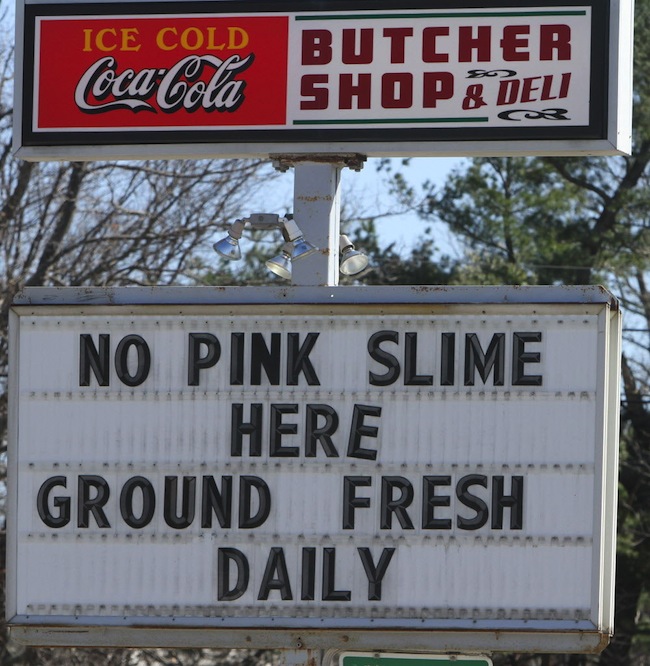Tesco buys horse slime from overseas but makes British farmers jump the fences
HOW did horse meat end up in our discount murder burgers? Sarah Montague told BBC radio listeners:
“The Swedish firm Findus employs a French company, Comigel, to make its ready meals. It gets meat for its factory in Luxembourg from another French company, Spanghero. And it in turn employs an agent in Cyprus, who uses an agent in the Netherlands, to source meat from an abattoir in Romania.”
So. This is where all the agents from the Cold War ended up. They work in the shadowy world of international meat processing.
Tesco has been putting horsemeat in its Everyday Value Spaghetti Bolognese ready meals. It’s not the cheap business it sounds. Verity’s pony that “fell ill” when she went to Uni was not collected by the Tesco delivery truck. A lot of thought and cooperation when into that Triggerburger.
Tesco is richer than it’s meat dishes.
This is the company that makes its meat producers jump through hoops to get product into its stores yet buys foreign horses. The companies words on “Beef Standards” are boastful:
All the beef farmers supplying our approved abattoirs meet national farm assurance standards and belong to our suppliers’ Producer Clubs. We source cattle from all over the UK and Ireland.
That’s got more bull than a Romanian or Polish beef abattoir, which, of course, might have none.
All our standard cattle are sourced direct from farm assured farms which are independently audited. These farmers are committed to the highest standards of quality, animal husbandry and animal welfare.
That bollocks is still up on the Tesco website.
Every piece of beef sold in our stores can be traced back to the group of farms where it was reared and the cattle are always purchased direct from farm and never through livestock markets.
Prove it.
Value beef is taken from slightly older animals than those we use for standard beef but otherwise the standards are the same.
Ho-ho.
Finest beef is selected from prime cuts, and then matured to optimize flavour and tenderness.
And horse. It’s sometimes taken from horses – maybe.
Our Organic beef comes from farms which are audited by one of the organic farm bodies, such as Soil Association or Organic Farmers and Growers. Organic beef farmers only feed organic cereals and manage their pasture land without using artificial fertilisers and pesticides.
Sure about that?
Tesco bought something called “beef filler”. That’s stuff used to bulk up meat using offcuts from the remnants of cattle carcasses. You might know it as “pink slime”. USA Today told us:
Filler is made from fatty bits of leftover meat that are heated, spun to remove the fat, compressed into blocks and exposed to ammonia to kill bacteria. Producers often mix the filler into fattier meat to produce an overall leaner product and reduce their costs.
It’s cheap. That keeps costs down. That makes the beef cheaper than UK supplier’s can produce.
Tesco has a “real food” policy.
We know how important animal welfare is to our customers and that’s why we have a dedicated agriculture team at Tesco, who are responsible for writing and implementing our strict Livestock Codes of Practice. These codes cover all aspects of farming from the breeding farms to the finishing farms, and ensure good environmental practice as well as welfare and food safety.
We also work with independent experts, such as vets, to ensure we keep improving things. And to make sure our suppliers always follow these codes, we have an independent auditing company carry out 100s of unannounced checks on our farms and factories each year. These standards are applied wherever we source from, regardless of country of origin
Our agriculture team also spend time working with the farmers that supply us to improve standards and communication throughout the supply chain, as well as developing new products and systems.
Those British farmers don’t stand a chance.
Karen Tait speaks for many:
I contacted the local Tesco store in Kirkwall, Orkney last week to express my concern that there was no Scottish lamb on the shelves, only lamb from New Zealand. Given that Scottish sheep farmers are struggling to make a living and this store is based in the heart of a beef and lamb producing community, I found this outrageous. The majority of the shoppers i…n this store will be directly or indirectly involved in farming and you are relying on their support by receiving their custom, but you are not supporting them in return. The local manager listened to my concerns and stated that he could do more to promote Scottish lamb in future. He explained that the Kirkwall store does stock a number of locally produced goods (a fact I was already aware of as I prefer to purchase them) and that he wished to increase the range. He also explained the very strict criteria each producer must comply with before their product gets to the shelf. I am a farmer so am familiar with such inspections as we have to meet a number of standards and have to pass strict checks on our own farm in order to sell livestock into the food chain. I am therefore horrified that horse meat has been found in your burgers, and given the strict criteria you have in place and our national cattle traceability system, cannot believe you were not aware of this?The local store is managed and run by a group of staff that you should be very proud of but I am unlikely to be a regular customer there anymore as I don’t wish to support your lack of regard or respect for honest food production within Scotland and the UK.
So. Tesco. Still sticking to that trusty policy..?
Posted: 12th, February 2013 | In: The Consumer Comment (1) | TrackBack | Permalink



